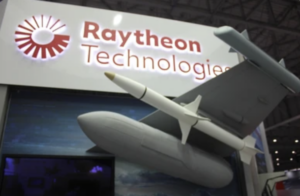Raytheon to Pay Over $950 Million to Resolve Criminal Fraud and Civil FCA Violations

Raytheon Company (Raytheon), a subsidiary of RTX (formerly Raytheon Technologies Corporation), has agreed to pay over $950 million to settle civil and criminal cases stemming from multiple federal investigations, including $428 million to settle claims brought by a whistleblower under the False Claims Act (FCA).
The government alleged that Raytheon violated the FCA by engaging in fraudulent pricing on defense contracts by misrepresenting or omitting pricing data during negotiations for key military systems, including the PATRIOT missile system. In addition, Raytheon violated the Foreign Corrupt Practices Act (FCPA) by bribing a Qatari military official to secure defense contracts and breached the Arms Export Control Act (AECA) and the International Traffic in Arms Regulations (ITAR) by failing to disclose these bribes in its export licensing applications.
As part of the agreement, Raytheon has entered into two three-year deferred prosecution agreements: one for admitting to committing major fraud against the government by overcharging the Department of Defense (DOD) by more than $111 million, and the other for admitting to a conspiracy to violate anti-bribery and export control laws.
The full settlement agreement can be found here.
Foreign Bribery and Export Control Violations
Raytheon’s involvement in foreign bribery exposed further violations of U.S. export control laws under the International Traffic in Arms Regulations (ITAR). Between 2012 and 2016, the company engaged in a conspiracy to bribe a high-level Qatari military official to secure lucrative defense contracts. Raytheon also falsified documents and made sham payments to conceal the bribes, violating both the FCPA and the AECA, laws meant to protect national security and promote fair competition. U.S. Attorney Breon Peace for the Eastern District of New York emphasized that they would “continue to pursue justice against corruption, and as this agreement establishes, enforce meaningful consequences, reforms, and monitorship to ensure this misconduct is not repeated.”
The resolution involves not only criminal penalties but also a three-year compliance monitorship to ensure the company adheres to stricter internal controls. Since Raytheon took responsibility and implemented corrective actions during the investigation, including enhanced compliance programs and employee terminations, the DOJ applied a 20% reduction in the criminal penalties under the applicable U.S. Sentencing Guidelines.
Pricing Fraud
Raytheon admitted to providing false pricing data to the DOD on contracts between 2012-2013 and 2017-2018. The company manipulated information during negotiations for systems integral to U.S. defense efforts, including missile systems, resulting in overcharges to the government. This conduct violated the Truth in Negotiations Act (TINA), legislation designed to prevent contractors from inflating prices they charge for products or services sold to the government.
Not only did Raytheon misrepresent labor and material costs to inflate its profits, but it also double-billed the government on weapons maintenance contracts. The settlement is one of the largest recoveries in government procurement fraud. With Raytheon’s cooperation in this case, the DOJ applied a 25% reduction in the criminal penalties.
False Claims Allegations
Raytheon also agreed to a civil False Claims Act (FCA) settlement involving allegations that it provided false cost or pricing data to the DOD and double-billed on a weapons maintenance contract. The settlement amount of $428 million marks the second-largest government procurement fraud recovery under the FCA. This is due to Raytheon’s violations of TINA, which requires accurate cost data for government contract negotiations, especially when no price competition exists.
Raytheon admitted it failed to disclose cost data for labor and materials from 2009 to 2020, leading to overcharges and inflated profits. The company also admitted it misrepresented costs during contract negotiations, failed to disclose accurate data for staffing a radar station, and billed the same costs twice on a separate DOD contract.
John Tenaglia from the DOD expressed the importance of this recovery, saying, “The price we pay for equipment and services absolutely matters… This Justice Department recovery both restores funding… while also serving as a strong deterrent to all companies that might seek to deny DOD contracting officers the factual information they require.”
A portion of the settlement resulted from a qui tam lawsuit filed by whistleblower Karen Atesoglu, a former Raytheon employee, who will receive $4.2 million.
What’s Next
Assistant Attorney General Kevin Driscoll stated that Raytheon’s fraudulent and corrupt conduct “erodes public trust and harms the DOD, businesses that play by the rules, and American taxpayers.” Principal Deputy Assistant Attorney General Brian Boynton expressed that transparency is critical in defense contracting, particularly for companies that handle sensitive military technology, stating the “department is committed to holding accountable those contractors that knowingly misrepresent their cost and pricing data or otherwise violate their legal obligations when negotiating or performing contracts with the United States.”
Now, the government is determining whether Raytheon will be suspended or debarred as a federal contractor. This decision will be overseen by the Interagency Suspension and Debarment Committee (ISDC), ensuring federal agencies hold the company accountable beyond the settlement’s immediate terms.
As always, if you have any information that you’d like to report about government contract fraud, international corruption and fraud, or more generally want to learn about what it means to be a whistleblower under the various government programs, please do not hesitate to contact us. We will put you in touch with an experienced member of our whistleblower team for a free and confidential consult. Who knows, you might be the whistleblower who will help lead the government to the next big settlement.